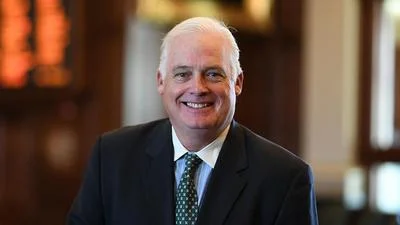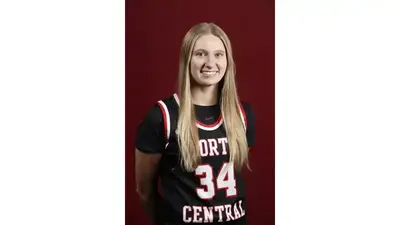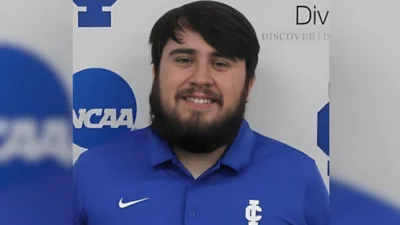Lake Land College students can now complete a FAFSA to find out if they qualify for the Laker+ financial aid program. With the Laker+ program, students who qualify for financial assistance often receive more than enough to cover tuition and fees, so the remaining money is refunded to the student.
The Lake Land College Laker+ program maximizes qualifying students’ financial aid opportunities to cover tuition and fees plus provides support for living expenses. This program is effective now and will be available to those applying for the following semesters.
Students can complete the 22-23 FAFSA, using 2020 tax information, for the Fall 2022, Spring 2023 and Summer 2023 semesters.
Students can complete the 23-24 FAFSA, using 2021 tax information, for the Fall 2023, Spring 2024 and Summer 2024 semesters.
Because Lake Land College is such a great value and can offer numerous financial assistance options, students often receive refunds of their assistance that can be used to cover housing, gas, food and other college expenses.
With Laker+, financial aid is applied in a stackable format. After the cost of tuition and fees are covered with financial assistance, the remaining funds are refunded to students. Students who receive aid have their tuition and fees covered first with the MAP grant, institutional funds and scholarships, then the federal PELL grant. What this means for students who have 0 expected family contributions (EFC) as determined by the FAFSA, is that they often will receive a refund check or direct deposit of funds that can be used to cover every day living expenses such as housing, food, gas and childcare.
“At Lake Land College, we have several initiatives in place that can assist students with tuition and fee costs and allow them greater opportunities to focus on their educational goals. In many cases, this provides students with the opportunity to graduate debt-free and launch a career without the burden of student loan payments. Students who seek to transfer can often minimize the need for student loans,” Lake Land College President Josh Bullock said.
Laker+ is available to those who live in the college district in the counties of Christian, Clark, Clay, Coles, Crawford, Douglas, Edgar, Effingham, Fayette, Jasper, Montgomery, Moultrie and Shelby. Current and future students can begin the Laker+ process by completing the FAFSA online at fafsa.gov. The Lake Land College School Code is 007644.
The differences between Laker+ and other college and university programs is two-fold. First, Lake Land College’s tuition and fees are one third less than the average Illinois public university tuition and fees, and significantly less than most private institutions. Second, when students apply scholarships and financial aid to Lake Land’s tuition and fees–there is money left over for students to cover everyday living expenses such as housing, food, gas and childcare. With the typical college or university “last to pay” tuition and fee incentive program, the college or university only pays the outstanding balance in tuition and fees after all financial aid and scholarships are awarded—leaving no money for the student to cover everyday living expenses.
“We want students and families to see that there is a path for them to receive an outstanding education without incurring significant and life-altering debt. Students who are new to college do not always realize there are more expenses than just tuition and fees even when students live at home. The Laker+ program provides financial resources to help students meet their additional college costs and everyday living expenses,” Lake Land College Director of Financial Aid and Veteran Services Jennifer Hedges said.
With the Laker+ program, Lake Land College offers students support in earning an education at one of the top community colleges in the nation. This education provides an excellent foundation for a career in the workforce or transfer to a university.
“Students who are considering different options should consider the fact that any financial aid or scholarships that they receive will go quite a bit farther at Lake Land College—even when a college or university offers students ‘last to pay’ tuition and fee incentives,” Bullock added.
A PELL grant is a federal grant program available to college students who qualify as determined by the FAFSA. PELL grants do not have to be repaid and are dependent on a student’s EFC or expected family income vs. the cost of tuition at the college the student is attending. A student who qualifies for a PELL grant will receive the same dollar amount no matter what college the student attends.
In the first example, a student who has a 0 EFC as determined by the FAFSA and receives the same number of scholarships, along with the same PELL grant and MAP grant. The student who attends a four-year college will have $0 in his/her pocket after the college makes up the difference in tuition and fees. The student who attends Lake Land College will have a refund of $7,035 for college expenses.
In the second example, an in-district high school senior student who is in the top 15% of the graduating class, or earns a 26 on the ACT or a 1230 on the SAT, is guaranteed a Presidential Scholarship covering two years of tuition. This scholarship would be applied first to cover tuition expenses, while financial aid or other scholarships would cover fees with the student receiving the remaining financial aid or scholarships in the form of a refund to cover living expenses.
The Lake Land College district consists of the following school districts: Altamont, Arthur-Lovington-Atwood-Hammond, Beecher City, Brownstown, Casey-Westfield, Charleston, Cowden-Herrick, Cumberland, Dieterich, Effingham, Jasper, Kansas, Marshall, Martinsville, Mattoon, Neoga, North Clay, Oakland, Okaw Valley, Pana, Paris, Ramsey, Shelbyville, Shiloh, South Central, St. Anthony, St. Elmo, Stewardson-Strasburg, Sullivan, Teutopolis, Windsor.
Original source can be found here.





 Alerts Sign-up
Alerts Sign-up